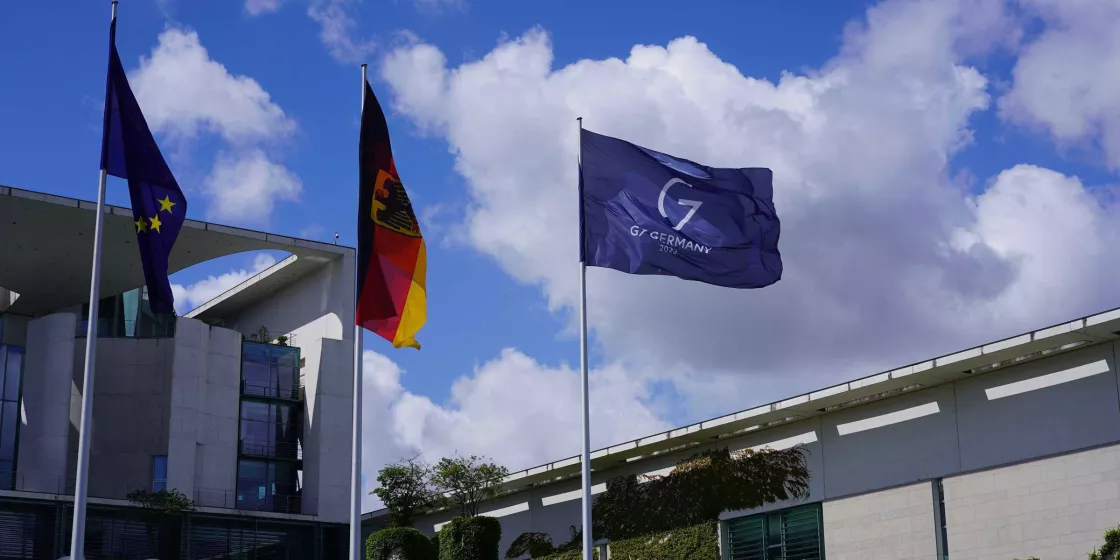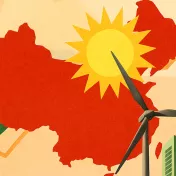The dust has settled after the G7 Ministerials in May, and the Leaders’ Summit in Elmau is fast approaching.
Ministers have already made important progress on crucial issues, including:
- loss and damage
- the decarbonization of the power sector
- ending financing for fossil fuels.
At the G7 Summit at the end of June, this progress must be cemented and substantiated through concrete decisions and funding announcements.
In this blog, we outline three essential issues on the climate agenda that G7 leaders should prioritize if they are to make the summit a success.
1. Finance for loss and damage, and a global risk shield
- Why? The poorer half of the world’s population, which has contributed least to the climate crisis, suffers the most from its consequences. So far, the people, communities and countries that are particularly affected have received no adequate financial support to manage climate risks and address loss and damage from extreme weather events and slow-onset processes. New and additional funding is urgently needed to bring existing tools up to an adequate scale in order to close protection gaps and address both economic and non-economic loss and damage.
- What’s happened so far at the 2022 G7? For the first time, G7 Development Ministers, as well as Climate, Energy and Environment Ministers, have explicitly recognized the urgent need for financial support for developing countries to avert, minimize and address economic and non-economic loss and damage from G7 members. They want to work towards a Global Shield against climate risk; support climate risk insurance and social protection systems; and increase their funding for climate adaptation and resilience building.
- What’s needed at the 2022 G7 Summit? The G7 members should:
- commit to providing new and additional climate finance to address damage and loss to developing countries at a scale commensurate with their existing and future needs
- commit to making the Global Shield against climate risks functional, working together with affected developing countries, based on their needs. The Global Shield must provide financial and capacity support to avert, minimize and address economic and non-economic loss and damage from extreme weather events and slow-onset processes.
2. Phasing out fossil fuels
- Why? Mitigation is still the best way to reduce loss and damage and the need for adaptation. A 2021 International Energy Agency (IEA) report laid out a clear pathway to achieving net zero CO2 emissions by 2050. Industrialized countries need to phase out coal by 2030 and completely decarbonize their power systems by 2035. By 2040, globally, all unabated coal-fired power plants have to be phased out and emissions in the electricity sector must reach net zero. New fossil fuel supply infrastructure is not aligned with the IEA net zero scenario.
- What’s happened so far at the 2022 G7? This year, G7 Climate, Energy and Environment Ministers have committed to a predominantly decarbonized power sector by 2035. Moreover, the ministers have agreed to “concrete and timely steps towards the goal of an eventual phase-out of domestic unabated coal power generation”. Hence, the G7 members have committed to a coal phase-out, and given that they have agreed to decarbonize their electricity sectors by 2035, coal has to be phased out before 2035, and ideally by the IEA target of 2030. Indeed, most of the G7 countries already have a coal phase-out date of 2030 or earlier, except for Japan and the United States.
On an international level, G7 Climate, Energy and Environment Ministers have agreed to end investments in the international unabated fossil fuel energy sector by the end of 2022. However, current statements by political leaders of the G7 cast doubt on whether this will be fully implemented. - What’s needed at the 2022 G7 Summit? G7 leaders should:
- reiterate their commitment to ending international investments in unabated fossil fuels by the end of this year
- recognize that industrialized countries have to lead on the global phase-out of coal-power generation and commit to a phase-out by 2030.
3. Committing to concrete targets on energy efficiency
- Why? Deploying renewable energies alone will not be enough to achieve the necessary greenhouse gas reductions. Energy efficiency has a major role to play in a net zero transition. The G7 members acknowledge this and refer to energy efficiency as a “first fuel”; however, this needs to be reflected in their investments and actions.
- What’s happened so far at the 2022 G7? G7 Climate, Energy and Environment Ministers have highlighted the role of energy efficiency as the “first fuel” in the energy transition. They want to enhance energy efficiency and achieve significant progress by the end of 2022. Moreover, they have committed to improving their regulatory frameworks and leveraging public and private finance to promote solutions to foster energy efficiency improvements in their economies.
- What’s needed at the 2022 G7 Summit? The G7 members should:
- acknowledge that energy efficiency is one of the most cost-effective measures to reduce GHG emissions in building, industrial and the transport sectors (as was laid out by the IPCC AR6 Working Group III Report)
- commit to significantly increasing annual investments in energy efficiency infrastructure in line with the need to double investments until 2030 (as was laid out by the IPCC AR6 Working Group III Report)
- set concrete annual reduction targets for primary and final energy consumption.
‘Deutsche G7-Präsidentschaft für Klimaschutz nutzen’ is funded by Stiftung Mercator. Responsibility for the contents rests with Germanwatch.









